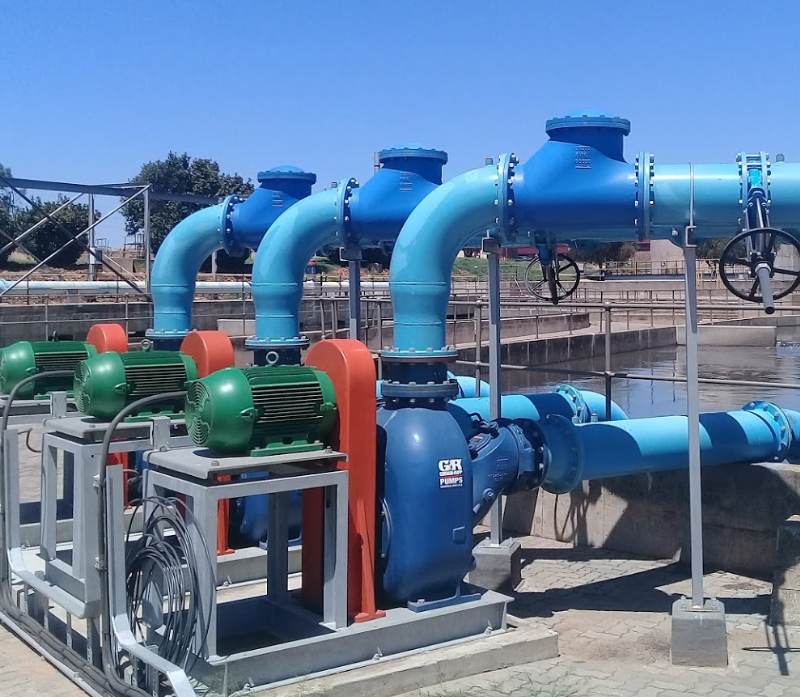Gauteng water woes: Rand Water to invest R28 bn towards increased storage capacity by 2028
Updated | By Masechaba Sefularo
Rand Water is set to invest nearly R30 billion to increase its storage capacity of treated water by building an additional 12 reservoirs by 2028.

Minister for Water and Sanitation Senzo Mchunu on Tuesday provided an update on planned interventions to address water supply issues in Gauteng’s metros (City of Johannesburg, Tshwane and Ekurhuleni) and other municipalities within the bulk-supply areas of Rand Water.
“By 2028 Rand Water is planning to invest R28 billion by constructing additional storage reservoirs for Meredale, Daleside, Klipfontein, Germiston, Hartebeeshook, Bronberg, Brakpan, and Selcout. By 2028, Rand Water would have increased its storage capacity of treated water from the current number of reservoirs from 60 to 72 while its storage capacity from 6100Ml/day to 7630Ml/day,” said Mchunu.
The minister said his department held extensive engagements since September 2022, which resulted in a technical report that informed the short and long-term plans for water boards and affected municipalities.
According to the report, the current water demand for Gauteng is 4563 megalitres per day while Rand Water is currently able to supply 4431 ml per day, leaving a shortfall of 9% per day.
In addition, out of the 4431 ml per day that is pumped into municipalities’ systems, at least 5 % is lost within the Rand water System resulting in 3968 megalitres per day reaching municipalities.
The greatest loss occurs at the level of municipalities.
“Out of this 3968 ml per day, an estimated 45% is lost within municipalities’ systems as non-Revenue Water, yet the international norm should be 15% and below. Of the 45% non-Revenue water, at least 20% is recorded as physical losses such as leaks and burst pipes,” Mchunu explained.
The minister pinned the inadequate supply of water to residents on inefficiencies in speed and the quality of the workmanship when repairing leaks and burst pipes, load shedding affecting reticulation systems, an increase in unplanned human settlements, and little investment in water infrastructure by municipalities.
"In Gauteng, there are unplanned human settlement patterns that are on the increase resulting in unmetered water consumption. I want to send a warning out there, particularly to the provincial government of Gauteng..., that unless we do much more to plan human settlement patterns in Gauteng we will always be perpetually in a deficit if not increasingly in a deficit."
In the short term, Rand Water has commissioned an additional 210 ml per day reservoir under the Mapleton System in Vlaakfontein, aimed to increase water security for parts of Ekurhuleni and Tshwane.
The water entity is also increasing the treatment capacity at Zuikerbosch from 3800 ml per day, by a further 600 ml per day, between 2023 and 2025.
In its long-term plans to alleviate water shortages plaguing the country, the Department of Water and Sanitation says it is accelerating phase 2 of the Lesotho Highlands project. Once completed, this multi-billion-rand project between the two countries promises to transfer up to 485 million cubic meters /annum of water into the integrated Vaal water system.
South Africa is among the top 30 driest and most water-scarce countries in the world.
ALSO READ:

Show's Stories
-
Dad tries to have honest conversation with his 2-year-old
"I just wanted to have a conversation with you today...This morning you ...
The Workzone with Alex Jay 1 day, 11 hours ago -
Winter playground returns to Melrose Arch
Take the kids out this weekend, visit the Melrose Arch Winter playground...
The Workzone with Elana Afrika-Bredenkamp 1 day, 11 hours ago